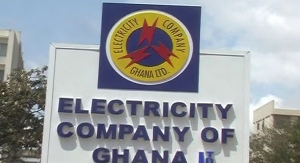District Malaria Advocacy Groups (DMAG), have been constituted and trained in some selected District of the Upper East Region to complement the efforts the Ghana’s Health Services in tackling the malaria pandemic in the region.
The Upper East Region is one of the leading regions in the country when it comes to the malaria diseases.
The one year project dubbed “Advocacy for Resources for Malaria Stoppage Initiative (ARMS)” Project, being implemented by the Institute for Social Research and Development (ISRAD)- Ghana, with funding support from the UKAID ,has among its goals of contributing to the reduction of malaria in the country and to also increase the diagnosis of malaria by treatment and increase local government funding for malaria activities.
It is being implemented in six Districts of the Upper East Regions namely the Bolgatanga, Bongo, Kassena-Nankana West and Kassena-NankanaMunicipal,Talensi and the Nabdam.
Briefing the Media at the separate functions in the beneficiary districts, during the formation and training of the groups, the Regional Coordinator of ISRAD- Ghana, Mr Abdul-Razak Issah, explained that the purpose of the training was to equip the groups with the necessary advocacy and lobbying skills to enable them lobby with the Assemblies to ensure that they release the 0.5 per cent of the District Assembly Common Fund (DACF) to the Ghana Health Service to undertake malarial control activities.
“The training is also aimed at empowering the Malaria Advocacy constituted groups to develop and implement advocacy plans and to work with the Community Malaria Ambassadors to advocate for local resource mobilization from the corporate bodies, Members of Parliament, NGOs and philanthropists to help fight the disease. They are also expected to help propagate malaria control activities in their respective Districts including the use of RTDs and the Long Lasting Treated Insecticide Nets”, the Regional Coordinator stressed.
The Regional Health Promotion of officer of the Ghana Health Service, Mr. Rexford King James Adjei, took the participants through the role of advocacy and malaria prevention, and entreated them to use key persuasive language and effective messages to inform policy makers on the magnitude of the disease in the region and to lobby for local resource mobilization to support the Ghana Health Service in its malaria control activities.
The participants who were drawn from the District Assemblies, the decentralized departments, the Ghana Health Service, the traditional and religious leaders, lauded the UKaid, the funding agency, for the project and the implementing agency, ISRAD- Ghana.
They appealed to those Assemblies who had not yet release the 0.5 per cent of the District Assembly Common Fund (DACF) meant for the malarial control activities to the Ghana Health Service to do so.
Health News of Tuesday, 8 November 2016
Source: modernghana.com

















